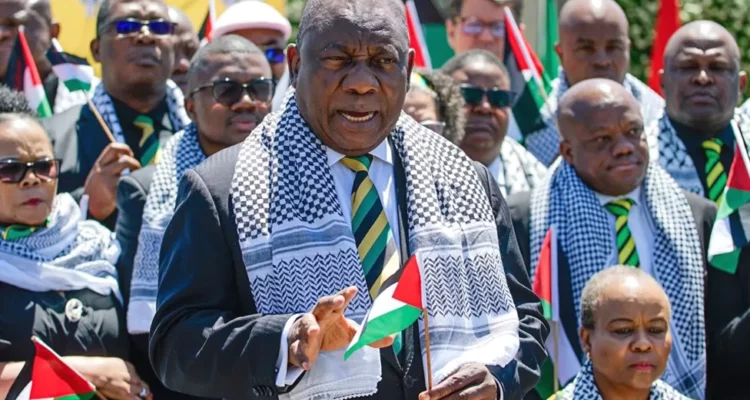Historical Background:
- Apartheid Era: During South Africa’s apartheid regime (1948-1994), Israel maintained close ties with the South African government, despite international condemnation of apartheid. Israel provided military and technological support to South Africa, leading to strained relations with other African countries and anti-apartheid movements worldwide.
- Post-Apartheid Relations: After the end of apartheid, South Africa adopted a foreign policy based on human rights, justice, and solidarity with oppressed peoples. The new government, led by the African National Congress (ANC), condemned Israel’s occupation of Palestinian territories and expressed support for the Palestinian cause.
Ups and Downs in Relations:
- Diplomatic Relations: South Africa and Israel established diplomatic relations in 1948, but these ties were often strained due to South Africa’s apartheid policies and Israel’s perceived support for apartheid-era South Africa. South Africa downgraded its diplomatic relations with Israel in the 1980s and officially severed ties in 2018, citing Israel’s treatment of Palestinians.
- Cultural and Academic Exchanges: Despite political tensions, cultural and academic exchanges between South Africa and Israel continued to flourish, with collaboration in fields such as arts, technology, and innovation. However, these exchanges sometimes faced opposition from South African civil society and pro-Palestinian activists.
Background Analysis of South Africa’s Support for Palestine:
- Historical Solidarity: South Africa’s support for Palestine is rooted in its own history of apartheid and struggles for liberation. The ANC, which led the anti-apartheid movement, sees parallels between apartheid-era South Africa and Israel’s treatment of Palestinians, viewing both as systems of oppression and discrimination.
- Ideological Alignment: South Africa’s foreign policy is guided by principles of human rights, justice, and self-determination. By supporting Palestine, South Africa aligns itself with the broader international consensus on the Israeli-Palestinian conflict, advocating for a two-state solution based on UN resolutions and the rights of Palestinians.
- Domestic Politics: South Africa’s support for Palestine is also influenced by domestic political considerations. The ANC and other political parties have traditionally championed the Palestinian cause, reflecting public opinion and solidarity with oppressed peoples among South Africans, especially within the black majority population.
- Global Diplomacy: South Africa often positions itself as a voice for the Global South and advocates for multilateralism and international law in addressing global conflicts. By supporting Palestine, South Africa seeks to uphold principles of justice and fairness in the Israeli-Palestinian conflict and demonstrate its commitment to solidarity with oppressed peoples worldwide.
Conclusion:
South Africa’s decision to support Palestine over Israel in the Israeli-Palestinian conflict in 2023-2024 reflects a combination of historical solidarity, ideological alignment, domestic political considerations, and commitment to international law and human rights. While this stance risks straining South Africa’s relationship with the USA and other Western powers, it underscores South Africa’s commitment to justice, self-determination, and solidarity with oppressed peoples in addressing one of the most complex and longstanding conflicts in the Middle East. As South Africa navigates the geopolitical dynamics of the region, it must carefully balance its support for Palestine with its broader diplomatic and economic interests on the global stage.


